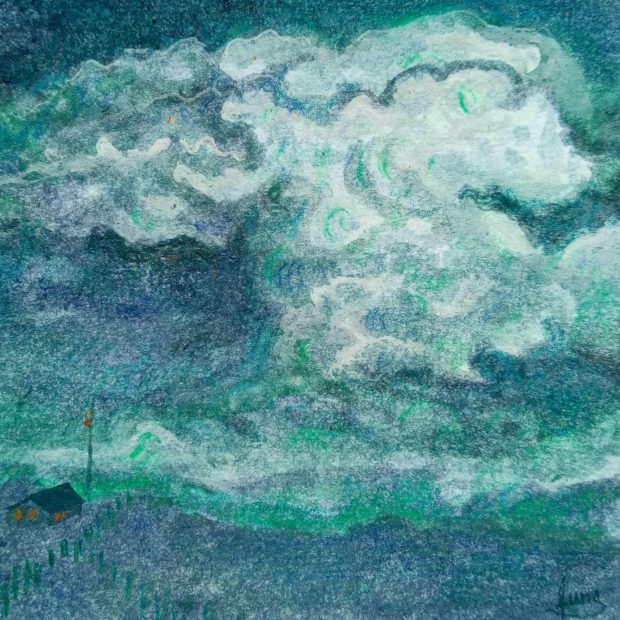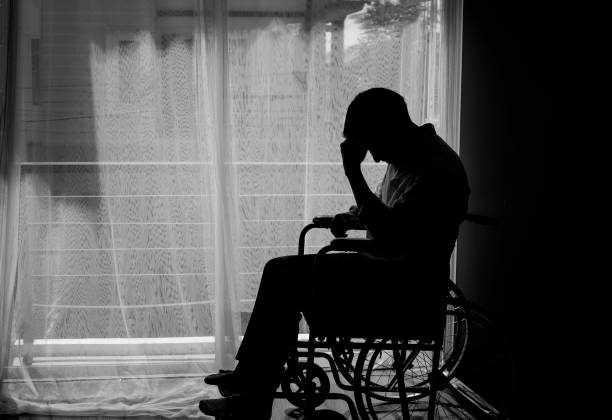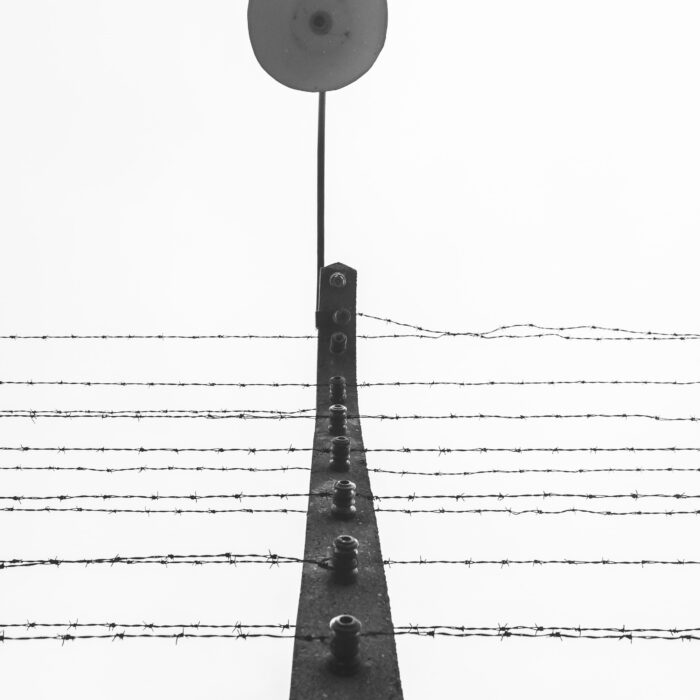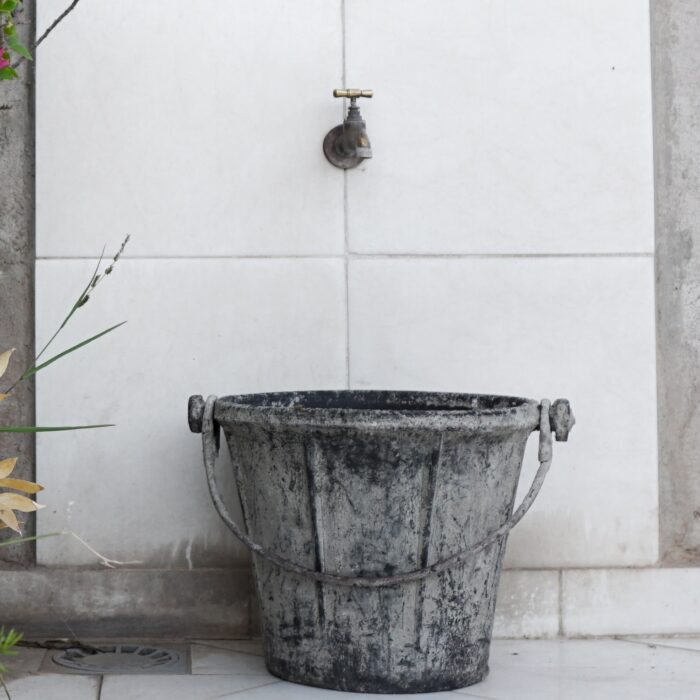You have no items in your cart. Want to get some nice things?
Go shopping
On my island, I am alone. Always.
It is small but beautiful. A green oasis that I can walk around in about 30 minutes, surrounded by a turquoise sea that is forever placid. The island holds my cabin, a simple structure made of sand-colored wood and years of hard work. Behind it is a well, endlessly deep and dark, adorned by a straw roof. A garden that I have carefully cultivated and tended to surrounds the cabin and the well, fruits and vegetables and flowers and plants sitting happily in the sun. Palm trees stand scattered around the grass that surrounds my garden, themselves surrounded by the sand outlining the irregular circle that is the island, surrounded by sea as far as the eye can see.
That’s all there is to it. It is simple yet peaceful, isolated but not lonely. Everything that is me is held within this island.
I exit the cabin and walk to the garden. I can see the sea from here if I stand on my tippy toes, but I don’t. I crouch down, spade in one hand and watering can in the other. The soft noise of waves lapping against the shore envelops me as I lose myself in the mindless task that is tending to something pulsates invisibly in its aliveness. Dig, shift, prune, weed, trim, plant. I sit in my own sweat, covered in dirt until the shadow that is me and my plants elongates, dark tendrils that almost reach the tip of the island. I look up, enjoying the orange and purple of a perfect sunset, the same one I see every day but never gets old.
I look down just as the sun is about to set. There is a glimmer of brightness against the ground as the sky all around me flickers, resetting into a new day. I don’t allow it to be night, ever, but I like watching the path of the sun as it races against itself in the sky.
I looked down because in that instant where the sky flickers and resets, the shadows of those trying to enter become visible. Dark bodies pressing against each other, squirming and thrashing against the barrier dome that keeps me safe. I only had to see it once, the first time, to know I would never look up again.
I push the memories away, yawning, – it is nighttime after all – and go back inside the cabin.
***
The therapist enters the crowded subway, observing with an expression of bored casualness every face and every hand on the train car. A tall woman talking loudly, passionately, on the phone stands at the end of the train. A few workers with delivery backpacks stand by the doors, laughing between themselves. He, the therapist, – let’s not give him a name, he doesn’t deserve it yet – nods at them, acknowledging the tongue they share in common. Towards the middle of the car, an older woman hugs her granddaughter, enveloping her tightly, gently, with arms that hold a lifetime of protectiveness in their wrinkles. The girl, probably around 12-years old and almost as tall as her grandma, is telling her about her day at school, her big brown eyes full of the playful energy of young innocence.
The therapist smiles beneath his mask, his eyes jumping from face to face, following the hidden stories that eyes and smiles tell, paths crossed and forever lost. The awe of wonder and curiosity slowly overcome the fear of hidden danger. Satisfied, the therapist adjusts his backpack and pulls out a book, ready to get lost in yet another world of stories.
And that’s when the shouting starts.
***
I wake up and exit my cabin, going straight to get water and tend to the garden. A garden that I have nurtured to mature prosperity for the past few years, that is never not green, that gives me fresh produce and calmness, through the effort of my hands and the water of my well alone. A garden that is now, inexplicably and impossibly, dying.
I feel my mind start to panic, the waves of the sea around my island becoming violent as it does. I try to force myself to calm down. This is not supposed to happen here, how can this even happen here? My panic surges again and gone is the blue sky, sun hidden by gray clouds.
I push the thoughts away and walk slowly, shakily, towards the garden. The spade and watering can appear in my hands as I make my way to the roughest looking spot. The tomato plant, which was deep green and red yesterday, has become brown and rotten, the stench of death a cloud above them. Weeds of an impossible purple color and barbed thorns throb menacingly around them, pulsating gently as if sucking the life force away from my garden.
My heart beats fast and my hands are dumb but I plunge the spade into the ground and dig and dig and dig and thrash and stab and cry. By the end of the day I am covered in dirt and sweat and tears and some blood, but the purple weeds are chopped up and dead and scattered around me and my tomatoes are green and red and healthy.
It is almost sunset but I crawl to the next plot, the peppers that had been beautifully yellow yesterday but are now shriveled up and moldy. I look down and away from the sun, seconds away from the sky resetting, spade held high and ready to strike, and
and
and
Night falls on my island, for the first day ever, and I am suffocated by warm darkness.
***
The closing doors in the middle of the subway are interrupted and violently forced apart by a large, calloused hand. The hand then joins its pair inside the pocket of a gray hoodie as its owner steps inside and forces himself through the crowded train, taking the seat from someone else by the seriousness of his stare. The therapist doesn’t notice any of this, he is already inside his book, but he will recreate the moment within his mind later.
Only when the woman starts shouting that his head snaps up in attention.
“Who the fuck do you think you are,” shouts the woman on the adjacent side of the wagon. The man with calloused hands looks up, almost lazy in his demeanor, and narrows his eyes.
“Shut up, bitch,” he shouts back, looking back down. The crowd sways and tightens as the subway starts rolling forward, metal against metal screaming beneath the car. The therapist puts away his book, goosebumps covering his skin.
“Don’t you fucking speak to me,” she shouts, making herself look big. “Watch what happens, I’ll fuck you up. Watch what happens.”
The therapist can hear her clearly, and the fear in her angry voice, from the other side of the train, even through the murmuring of the crowd and the screeching of the subway. The young girl stands a few feet away, the grandma’s arms wrapped around her head as she covers her ears.
“I said, shut the fuck up,” shouts the man, raising his voice. The therapist can see his hand tighten inside the pocket of his hoodie, his leg bouncing up and down rapidly.
The woman slaps a window of the subway with her open hand, her flesh making a sucking sound. “You wanna go, motherfucker?” she shouts again. “Try me, right now, let’s go you fucker.” She slaps the window again and again and again.
The man stands – “you fucking bitch” – and the crowd parts, pressing against their neighbors to get away. The man’s hand comes out of its sheath, she draws back, he snarls forward and he punches and she falls and there’s blood on the floor and the crowd, and he dives forward and the crowd screams and the therapist blinks and
and
another man, tall and in a red hoodie, has his arms around the man’s neck and he’s choking him and she’s bleeding on the ground and another woman shouts for more violence – “he punched a woman, fucking kill him” – and the crowd screams and suddenly the girl and her grandma are in front of the therapist and the girl is panicking and breathing hard, eyes wide as saucers, and
and
The therapist freezes as the subway plunges into shouting.
***
I look up into the night sky, the impossible night sky. The darkness is complete, the type that makes your eyes strain with the effort of not being able to perceive depth, because the only thing that exists is endless nothing in all directions. No stars hang above my island – I had never programmed any on the sky – so the darkness isn’t just above me, but all around me. I can’t see the sea even though I can hear the waves splashing – thank God sound can exist without light. I can’t see the palm trees or my garden either. At least shadows can’t exist without light, I think to myself as my heartbeat quickens, imagining the invisible barrier that is the horizon breaking down and –
I shake my head, trying to get rid of the thought.
I look down but can’t see my hands, can’t see the garden I know is beneath me, touching my knees. I squeeze my eyes shut and leave them clenched for a moment, willing light to come back when I open them. Nothing. I force my hands to lower, slowly. I touch dirt and leaves, they feel foreign in my hands. A shiver runs through me. There are no stars, no torches around my cabin, no sources of light. I clench my hands around the damp earth. It is as I am – cold and terrified and crumbling.
“This is not supposed to happen,” I say to myself, uselessly. My mind can’t come up with anything else to think about, I am equally terrified and dumbfounded.
I look towards where I remember my cabin being, hoping it’s still there, and get on my knees. The smell of wet earth and crushed salt surrounds me, but I take small steps in the direction of the cabin and its door and, beyond it the door, the single item that the cabin houses: a computer terminal. A computer terminal with its unnatural source of light and way to escape this hellish darkness.
I’m halfway to my cabin – at least I think – when, abruptly and impossibly, the moon rises. As if a soft light was turned on all around me, silvery wisps illuminate the sea and the palms and the garden. The light, however soft, is painful, I imagine my eyes turning from dark saucers to pinholes. I blink once, twice, three times, forcing my eyes to adjust. I look up.
The moon looks… different. I don’t know how else to explain it. It looks alive, and panicked. I feel it above me, breathing heavy. It has no eyes to hold shame, but I see it in its scarred face all the same. As if everything beneath it is her fault. As if it wants everything to end. Even though that’s also impossible, even though it’s all in my mind – it exists inside of me, and it is real. I look down at my silvery garden, unable to hold the moon’s stare for too long and
I see the waves rise and the palm trees ripple in the distance before I feel it. The ground begins shaking, up and down and left and right, like a wounded animal trying to remove the pain from its hide. I’m thrown forward, my palms bruising against the rocks of the island, and I shout at the ground to stop. A thunderous roar fills the air as a palm tree falls down. My hands clench, grabbing the dirt and shaking it back, as if grabbing and shaking the clothes of the land to make the motion stop. Yet I know it’s not the earth that’s in pain.
I look up again, hold its – her – panicked stare. She covers half of the sky with her terrified beauty. I plead at her to stop, but nothing stops. I sense her reflected in my own eyes, pleading through me – at me – and I realize.
I realize who she is.
All I can say, all that escapes my mouth in the quietest of whispers, is
“Oh.”
***
The world is frozen inside the therapist’s mind, all that exists in his vision are the big brown eyes of the young girl in front of him. Around them the man in the red hoodie keeps trying to wrestle down the one that attacked a woman, the woman is lying on the floor, thick dark blood pooling around her nose. She mumbles something and sways with the motion of the train, her arms clutching herself. The crowd has parted around them like someone parted some sea; the therapist can’t remember at the moment. The tall woman behind the therapist keeps shouting, urging violence and blood – “fucking stab him, he punched a woman”. Some other people in the back shout to press the emergency break, some others shout against it. This all happening around the therapist, passing him by like the roar of a river around a stone, but the therapist’s eyes only focus on one thing:
The young girl, hyperventilating. Her chest heaves up and down, her eyes jerking back and forth frantically. Her grandma is trying to comfort her – “it’s okay, look at me, it’s okay” – but her eyes refuse to focus. One of the delivery men tries to comfort her with an accent thick as syrup – “breathe, calm down, breathe” – his hand motions pressing the air down, but she does not look at her either. Wide with fear that is both logical and not, her eyes find their rock in the therapist’s eyes. They latch on to his, eager for stability, for help, for support.
The stare is so intense, the therapist looks away.
The therapist looks at the woman on the ground instead, the blood oozing back and forth with the motion of the train. Someone is trying to help the woman now, at least. The therapist sees the attacker on the ground, the man in the red hoodie pinning his hands behind his back and pressing down on his neck with a knee.
“I can’t breathe,” the attacker says. The therapist looks away sharply after that, dark shadows creeping up the horizon of his mind.
The tall woman cries for endings – “choke the motherfucker out” – and the crowd continues to yell about pulling the emergency break or not.
The therapist takes it all in with a detached shudder – there’s nothing he can do for them from where he stands – and looks at the young girl again. Her grandma is covering her ears but her breathing is still jagged and her eyes still focus on the therapist. He looks at her brown eyes, wide with panic. He knows she’s trying to regulate with him, through him. He thinks about saying something. He doesn’t. He looks back at the man in the red hoodie and his grin of violent determination. He looks at the woman shouting for violence, at the crowd in their confusion.
He looks down again, into the endless brown that is the young girl’s eyes. He thinks about saying something – he’s trained on helping others regulate their panic, after all. He thinks about saying something again, under the plea that is her stare.
He feels his mouth lock, held in place. He looks down at the book in his hand instead.
He knows he can help, but he doesn’t.
Why not, he thinks, why not. It’s both a question and a statement.
And then the train finally stops and the door opens and the girl sprints out, her grandma chasing after her.
Why not, he thinks again, paralized.
***
The ground heaves up and down but I can’t bring myself to escape through the cabin’s terminal. I am frozen in the moon’s – in her – stare all over again. She’s becoming bigger in the sky by the second, a giant luminous hole in the sky, both infinitely deep and flat like a sticker. She shimmers, becoming almost translucent between agitated breaths. Her invisible eyes shout in pain and panic and I know the darkness behind her is hurting her, making her bigger, wanting to escape. And with her largeness come waves rising higher and the ground trembling faster.
She is going to destroy the whole island and me with it.
I try to say something but my jaw and mouth and tongue are locked in place. I plead with my eyes, head tilted up as if wanting to be bruised by something bigger than myself. I look down. I can’t hold her stare for too long.
Looking down at my feet, clenching my fists, I try to shout. “Stop, please,” I say in a whimper.
I feel the wind around me pulse in response.
I close my eyes, still looking down. “I don’t know what you want from me,” I lie.
The shaking pauses for a moment. A breath in.
It continues with full force, whipping my clothes and hair.
I try to breathe in too, but everything is frozen.
“I’m sorry,” I say to the wind.
Nothing changes, nothing different happens.
I wrap my arms around myself and look up, eyes falling on the side of the enormous moon. “I’m sorry!” I say in a coarse scream this time. Thunder pushes against me as I hear a palm tree give in and crack and falls.
Nothing changes but I feel her stare on me, heavy and luminous. I force myself to meet it this time.
“I know,” I say, grabbing and pulling my hair, “I know.”
I feel my breath spilling out in uneven beats. It matches hers, both of us unregulated together. We stand there for a while, me and her, the moon and I, looking at each other. Disjointed beats whirling together in a dance that is pulling both of us into madness. I know what she needs, and I know I need it too. I don’t understand why I can’t do it. I should be able to do it. Why can’t I do it?
I’m still looking at her when a voice from within, perhaps the shadows hiding in the sky, perhaps the chemicals in my brain, says: stop trying to understand and simply do.
I shake with fear but cannot look away from her light.
Seconds elongate and length, making time infinite, as we breathe with broken jaggedness.
In between those hurtful breaths, I give in.
“Okay,” I say, guilt and terror running through my body.
I gulp down everything that’s hot and slimy in my mouth and
“Breathe with me,” I say to her.
I feel her stare tighten, her presence solidifying around me.
“Breathe slowly, deeply in,” I say.
“Hold it,” I say after a moment.
I pause. I pause for seven beats of my heart.
“And let it out, slowly,” I say, doing it too. I feel the wind around me quiet down, the tide thrashing less.
“That’s it, let’s do it again,” I say.
She pulses as she breathes with me, the moon. She is beautiful.
“You’re doing great, and you’re here with me,” I whisper. “You’re here.”
She becomes solid again, real.
“How many palm trees do you see?” I ask, my voice stronger.
The palm trees glow and sway in response. The grounds stop shaking to let them.
I want to jump and whoop in celebration, but we keep breathing instead. We keep looking at each other and breathing and answering simple questions until the land is peaceful and the waves are calm and the trees are grounded, and
A little ray of sunrise comes up to greet us.
***
The violence ends without a consequential conclusion, the way violence usually does. Meaningless, harmful, composed of bodily liquids.
The train stops and passengers rush off, screaming and shoving. The therapist stands in the sidelines, numb yet morbidly curious, and looks in. Seeing that she was breathing and conscious, the crowd left the woman there in her own blood and tears and mucus. The attacker on the ground on the other side of the train, gasping and struggling, the red hooded man pressing down on him, shouting at anyone who is still around to call the cops. The therapist sees various people on their phone and feels grateful he didn’t have to do it himself – he would never findd out if he would’ve been able to call or not.
People around him chatter nervously, waiting for the police to come. Other people, ones that weren’t in that wagon, roll their eyes in annoyance at the train delay. An older woman approaches the therapist and asks, “Did you see what happened?”
The therapist nods without looking at her.
“What happened?” she asks, trying to follow his gaze.
“He did something terrible,” he responds absentmindedly.
The older woman smacks her lips and nods knowingly and walks away, never realizing he wasn’t talking about the attacker.
The therapist looks around, has been looking around, but the girl and her grandma are nowhere to be found. He wonders where they went and if they arrived where they needed to be. In the depths of his mind’s eye, he sees himself reflected in her eyes.
After maybe 10 minutes – what is time but a way to measure what you’ve lost – the cops come. Two arrest the man and drag him away while he howls, another helps the woman sit up and gives her a gauze for her bloody nose. The therapist sees them nod and write, nod and write – as if it mattered, as if they could’ve done anything to prevent the atrocity – while the woman sits on a lonely train seat and tells her story, with the cop standing over her.
The therapist feels the rumble of another train, he is late to a client session after all. He tries to snap himself out of his daze and pushes his way into another crowded train, and is then on his way to someone he can help, perhaps. The attacker, the woman, the red hoodie, the cops, they all fade away in short bursts as the train picks up speed. The air smells like salty copper and the therapist tries to get back into his book. But the images of the story don’t appear in his mind’s eye. Only her eyes.
Still numb, the therapist gets through the day like a puppet on strings – the client session, the ride back, the coldness, the goosebumps that don’t go away – until he arrives back home into the lateness of night and plugs his subconscious into his computer terminal.
***
We sit there together, me and the moon, at the edge of night and sunrise. The waves have calmed and the winds have cooled and her smile brightens with the rays of light touching her face, light that bounces down to me. We breathe together in unison, heartbeat after heartbeat, eyes closed and calm.
I don’t understand how she appeared, but I am grateful she did. This space – this island, this sea, this land – was originally created to be used as a game. A dynamic game where players could plug in their subconscious and fully experience a different world. The island could be set to survival or creative mode, where players would build a settlement and fight hordes of sea monsters trying to invade. They could create and accumulate and become kings, all while feeling the sensations of things they could never experience in real life.
I was gifted the game as a novelty, a way to escape reality, but I wasn’t interested in any of it. I was already burdened with horrible client stories of violence and oppression to want to experience that virtually. Instead, the game sat in a corner of my apartment collecting dust.
Until a crafty engineer friend of mine figured out that you could modify the core code to link the island directly to your subconscious. The gardens became my ego, the ocean my super ego, the sky my id, and after every hard day at the clinic I plugged in and tended to that which made me emotionally dysregulated. I asked my friend to code it so it was never night, no darkness, no shadows of my subconscious trying to enter and plague me with intrusive thoughts. I was in control of my healing – I could touch and smell it, dig and water, tend and nurture it – without a single thought.
Until darkness came naturally on its own and the moon appeared like a floating, bright nightmare. And now, bathed in the moonlight of my moon, what was unbalanced before is balanced again. For now, at least.
The sun fully comes up but the moon is still in the sky, translucent and shimmering in its beauty. I don’t understand why she’s here – I don’t understand why I froze or why it impacted me so much – but I know I have to face it. I need to.
I think about having my friend revise the code, unlink the memory and get rid of the whole thing, making my island perpetually day again. But then again, maybe I won’t have to.
She who looks over me in the sky knows more than anyone I shouldn’t.
***
Santiago Márquez Ramos
Santiago is a therapist mainly working with Latinx immigrants in New York City. Originally from Mexico, he is passionate about weaving culture and identity, mental health, and social justice into all his stories; as well as Spanish, his native language. He lives in the intersection of magic realism, existential wonder, and whimsical self-reflection; but you can also find him running between coffee shops while battling the second draft of a novel, or writing poetry for strangers at Central Park.




